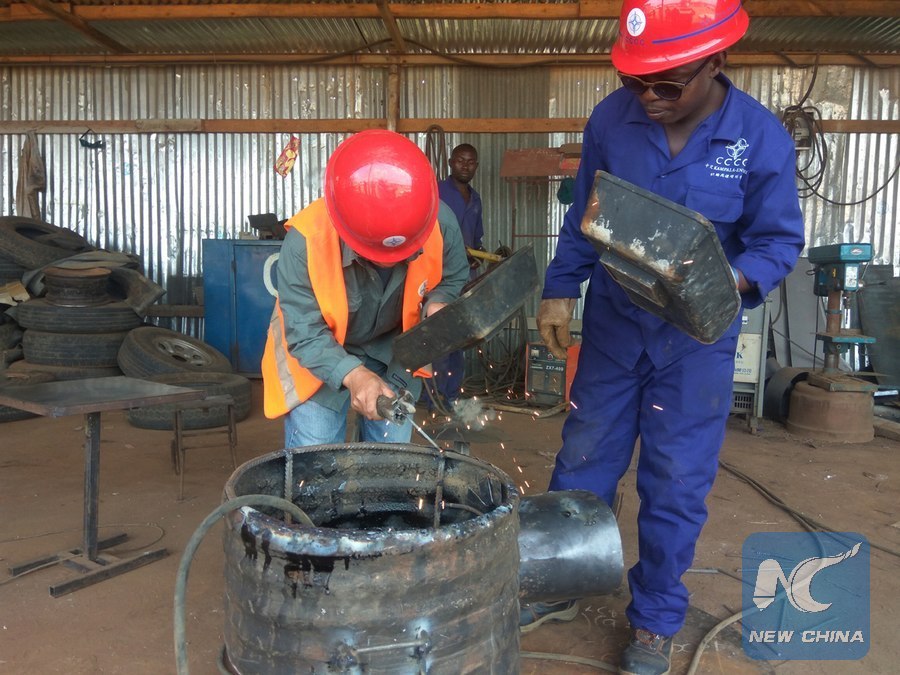
A Chinese technician working on the Entebbe Expressway in central Uganda instructs a local worker on how to use a welding machine, July 21, 2017. (Xinhua/Ronald Ssekandi)
ENTEBBE, Uganda, July 24 (Xinhua) -- Simon Sewalu, with barely no experience after dropping out of school, landed a job with the Chinese who are constructing Uganda's first expressway.
Under close supervision, Chinese technicians working for China Communications Construction Company (CCCC) trained Sewalu in carpentry. CCCC is constructing the over 350 million U.S. dollar Expressway linking the country's capital Kampala to Entebbe International Airport.
Such is the story of many African youths who are employed on Chinese construction projects across Africa.
At the expressway project in central Uganda, over 2,000 youths have been employed.
In northern Uganda, the Chinese are constructing a 1.4 billion dollar underground hydro power plant, the first of its kind in Africa.
Over 4,000 youths are employed at this project ranging from unskilled, semi-skilled and skilled levels.
Another hydro-power construction project funded by the Chinese is still ongoing in the central part of the country providing hundreds of jobs to youth.
Many youths argue that even after the projects are long gone, they will have gained the skills to sustain their lives and families.
"With the skills I have gained from the Chinese, I cannot fail in life. I have been doing building work here and am sure even when I leave I can apply these skills elsewhere," Jonath Kayagi told Xinhua.
For youths like Sewalu, they hope to go back to school after saving enough money is becoming alive.
Sewalu dropped out of school after failing to raise university tuition fees. Last year he joined the construction of the expressway to earn some money.
"I have a bank account where I save some money that I will use to pay my tuition fees when I go back to school," he told Xinhua.
"The Chinese are very hardworking and I have learnt from them that I don't have to feel sorry for myself for the situation am in," Sewalu said.
According to World Bank figures, Uganda has one of the youngest and most rapidly growing populations in the world. About 53 percent of Uganda's population is younger than 15 years, well above Sub-Saharan Africa's average of 43.2 percent.
About 500,000 people are expected to enter the labor market every year, hence the number of new entrants into the labor force will be growing and will be younger in the next few decades; currently, 64 percent of the unemployed are aged 24 and under.
Experts have argued that Uganda can take advantage of the increasing population by equipping youths with vocational skills.
They argue that increasing Chinese investment in the east African country is partly solving the unemployment problem.
Figures by the Chinese Enterprises Chamber of Commerce in Uganda show that over 40,000 jobs have so far been created by the Chinese enterprises in the country.

